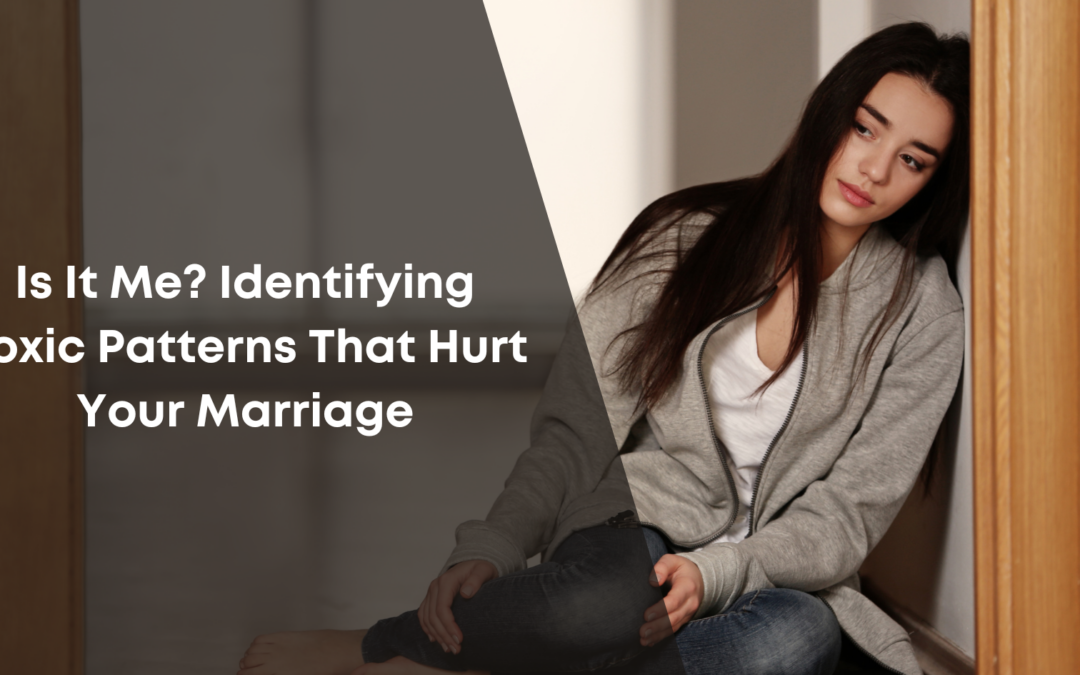You replay the last argument in your head, trying to figure out where it all went wrong. Maybe you said something you shouldn’t have. Maybe your spouse overreacted. Or maybe—just maybe—you’re starting to wonder: Am I the problem?
When a marriage falls apart, it’s easy to blame the other person. But if you’ve gone through a divorce (or are on the verge of one), you might be asking yourself hard questions. Could your own behavior be contributing to the conflict? Have unhealthy patterns shaped your marriage without you realizing it?
The Problem: Unhealthy Relationship Patterns Can Destroy a Marriage
Before you blame yourself or your spouse entirely, take a step back. Marital struggles aren’t just about one person’s actions—they’re the result of repeating patterns that build up over time. Constant arguments, emotional distance, and an ongoing cycle of frustration can make your marriage feel impossible to fix. Whether it’s criticism, defensiveness, or shutting down emotionally, these behaviors create a toxic environment that erodes trust and connection.
After a divorce, self-doubt creeps in. You may ask yourself, Was I too controlling? Too distant? Too reactive? That lingering question—Was it me?—can be emotionally exhausting, leaving you stuck in regret or uncertainty. The fear of repeating the same mistakes in future relationships can make it hard to move forward with confidence.
A relationship shouldn’t be a battle over who’s to blame. Yet so many marriages fail simply because couples never learn how to break unhealthy cycles. It’s unfair, but it doesn’t have to be this way. There’s a better way to navigate conflict, heal from the past, and build stronger relationships moving forward.
There’s a Better Way to Understand Your Role in Marriage
I’m Steven Unruh, a divorce mediator with over 30 years of experience helping couples untangle complicated relationship dynamics. I’ve seen how certain behaviors—often unintentional—can erode trust and communication. But here’s the good news: recognizing these patterns is the first step to healthier relationships.
Let’s talk about five common unhealthy patterns in marriage and what you can do about them.
1. The Blame Game
When something goes wrong, do you immediately point the finger at your spouse? Blame creates defensiveness and shuts down meaningful conversations. Instead of looking for someone to fault, focus on solutions. Ask yourself: What can I do differently next time?
2. Avoidance and Stonewalling
Do you shut down or withdraw when conflict arises? While avoiding arguments might seem like keeping the peace, it actually creates emotional distance. Healthy relationships require open, honest communication—even when it’s uncomfortable.
3. Overreacting to Small Issues
It’s easy to get caught up in the moment and make minor problems feel like major betrayals. If you find yourself escalating arguments over small things, take a step back. Ask yourself: Is this really worth the fight? Learning to manage emotional reactions can save relationships.
4. Failing to Listen
Many people hear their spouse but don’t really listen. Are you waiting for your turn to talk, or are you genuinely trying to understand your partner’s perspective? Active listening—without interrupting or formulating your response while they speak—can change the course of an argument.
5. Keeping Score
A relationship isn’t a competition. If you constantly bring up past mistakes as ammunition in new arguments, it prevents healing and resolution. Instead, focus on what’s happening now and how you can move forward together.
What If You’re Not the Only One?
Maybe you’ve recognized some of these patterns in yourself. But what if your spouse had unhealthy habits, too? Many couples fall into cycles where both people contribute to the dysfunction. A successful marriage isn’t about deciding who was right—it’s about working together to build something better.
Why Divorce Mediation Can Help
If you’re struggling with unresolved issues, mediation provides a path forward. Unlike court battles that focus on winners and losers, mediation helps couples understand each other and reach fair agreements. It’s not just about dividing assets—it’s about creating solutions that allow both people to move forward with clarity and confidence.
Take the First Step Toward Healthier Relationships
Recognizing unhealthy patterns is an opportunity for growth. Whether you’re healing from divorce or hoping to improve future relationships, you don’t have to navigate it alone.
If you’re ready to move forward with clarity and confidence, I can help. As a divorce mediator with more than 30 years of experience, I’ve guided countless individuals through difficult transitions. Schedule a consultation today and take control of your future—because understanding your patterns can lead to healthier, happier relationships.


Recent Comments